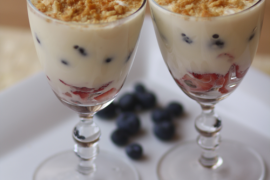Middle Eastern spices don’t only enhance the taste of your dishes, but also promote your wellbeing.

Middle Eastern spices add a rich, unique flavor and aroma to Arabic cooking. They form the basis to any delicious Middle Eastern meal. Not only do they add taste but they also contain ample health benefits.
During the olden times, spice trade flourished both through the sea and land routes in the Middle East. Spices such as cassia, cinnamon, cardamom, pepper, ginger, and turmeric were known and used for commerce in the spice trade business. By the middle of the 7th century AD, Arab traders started dominating the maritime routes. They brought in these spices from the East and integrated them into the Arab cuisine.
Here are some favorite spices used in Arabic cooking.
Turmeric
Turmeric adds color and earthy flavor to the dishes. It contains several compounds: the most important being Curcumin. It is a powerful antioxidant that not only fights oxidative damage but also boosts your own antioxidant enzymes.
Also called as free radical scavengers, antioxidants significantly reduce oxidative stress. Oxidative stress has been linked to cancer, heart disease, stroke, arthritis, immune deficiency, respiratory diseases, Parkinson’s disease, and other inflammatory conditions.
Research shows Curcumin reduces depression, prevents or slows down blood clots, promotes skin health, and could treat or prevent certain cancers.
Possible uses
Add a bright yellow color to your rice dishes and fish by adding a little turmeric to your meals. Also, add it to desserts like ‘Sfouf’ (semolina turmeric cake)
Cumin
Cumin is one of the most popular Middle Eastern spices. It’s a highly fragrant savory spice with a strong flavor. It promotes digestion, contains beneficial plant compounds, is a rich source of iron, helps with weight loss, and may improve blood cholesterol levels.
Small amounts that are used in seasoning will provide you with antioxidants, iron, and may also help to control blood sugar. Alternatively, you’ll need larger doses in supplemental form for weight loss and to improve blood cholesterol levels.
Possible uses
Commonly added to ‘Falafel’ (it’s a deep fried ball made with ground chickpeas, fava beans or both), ‘Foul Medames’ (it’s a stew of cooked fava beans served with cumin, vegetable oil, chopped parsley), and lentil soup.
Nutmeg
Westerners use nutmeg primarily in their dessert dishes while people in the Middle East use nutmeg in meat dishes. Nutmeg has a warm, spicy aroma that can be used both in sweet and savory cooking. This ancient spice promotes digestion, relieves pain, protects the liver, improves brain and oral health, and even regulates your blood pressure.
Possible uses
Nutmeg is a popular addition to the ‘Maamool’ (a semolina shortbread cookie filled with dates or nuts). Be careful, as taking this spice in high doses can act as a narcotic and can be intoxicating.
Cardamom
Blessed with complex flavors, cardamom is an amalgam of minty, citrusy, and spicy flavors. It is also highly fragrant and used widely in all sorts of dishes. Its diuretic properties and presence of high levels of antioxidants help to lower blood pressure.
Cardamom, when mixed with other medicinal spices, helps to reduce nausea and vomiting. It treats bad breath and prevents cavities. It has antibacterial effects and fights several common strains of bacteria.
Possible uses
Spice up your chicken dishes with cardamom, blend it with your Arabic coffee or use it in ‘Chai Karak’. Alternatively, you can use it for desserts such as ‘Muhalabiyah’ (a delicious Middle Eastern pudding made with thickened milk and rice flour).
Cinnamon
As far back as 2000 BC, cinnamon was an essential commodity in the Middle East. It is aromatic and versatile and has a bold and woody flavor.
Being rich in antioxidants and possessing anti-inflammatory properties, cinnamon fights infection and helps to repair tissue damage.
A teaspoon of cinnamon per day has a beneficial effect on blood markers. Cinnamon reduces the total cholesterol levels and LDL cholesterol while maintaining proper cholesterol levels.
Possible uses
Use it to season chicken, to make ‘Moghrabiah’ (a Lebanese dish made with pearl couscous and cooked chicken peas) and add as a garnish to your ‘Sahkeb’ drink (Turkish hot milk with cinnamon).



